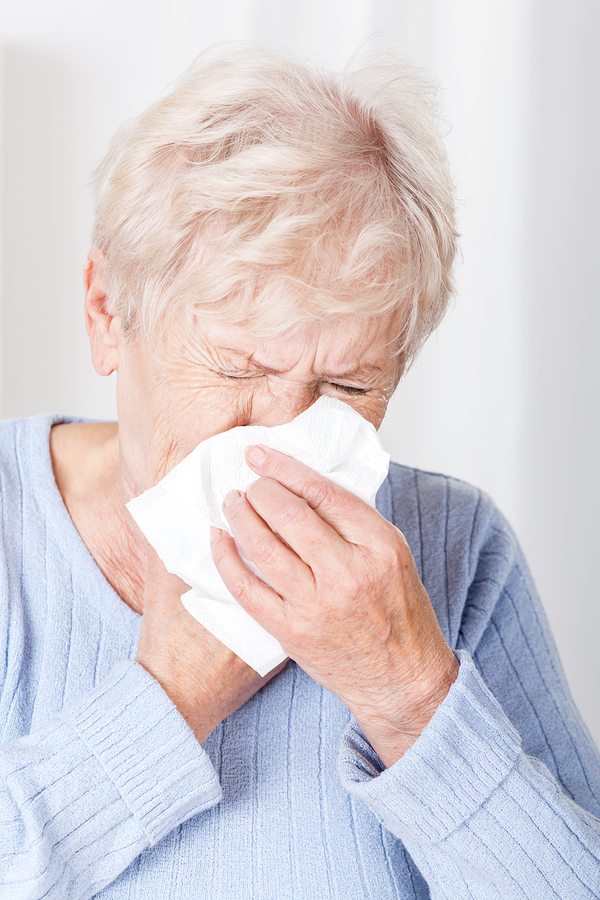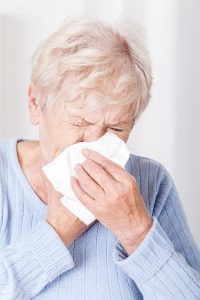
Chronic Cough in Seniors – When to See a Doctor

Coughing is common in people of all ages. Normally it is a side effect of a cold or an upper respiratory infection, or even the fault of allergies. For some people, though, this cough doesn’t go away over time, which can be a sign that something much more serious is going on.
A chronic cough is classified as one that lasts for eight weeks or more. This problem is especially prevalent in the elderly, and is often caused by a history of smoking, or conditions like asthma. Coughs usually begin when an irritant gets into the lungs, which triggers the brain to send a signal to the throat to try to expel it. In chronic coughers, however, this trigger keeps occurring even if the irritant isn’t present, leading to much more coughing, seemingly for no reason.
While a cough may seem at the very least harmless, and at the very most disruptive and annoying for both the person coughing and the people around them, coughing can actually be a sign that there is something going on under the surface. Chronic cough can be indicative of lung disease, tumors in the lungs, or sometimes even heart problems.
So how do you know when a cough is more than just a cough? For starters, take a look at these symptoms below. If you or your senior care aide notice any of these in the senior you love, it would be a good idea to schedule a doctor’s appointment as soon as possible, to rule out something more severe.
- Excess phlegm – Many coughs are caused by the drainage of mucus into the back of your throat (known as post-nasal drip). However, if your loved one’s cough contains a lot of sputum (this mucus or “phlegm” mixed with saliva), this could be a sign that it is not just a common cough, especially if they are not suffering from other cold symptoms at the time.
- Fever – A fever could be a sign that the body is trying to fight off an infection. If it appears in conjunction with the chronic cough, it could be trying to tell you something. Perhaps the senior is suffering from a cold, flu, or other illness, and they may need antibiotics to help them fight it off.
- Weight loss – Weight loss, especially when it appears along with the fever and the chronic cough, is definitely a sign that something is off inside the body. This symptom could be a sign of tuberculosis or lymphoma, and should be checked out by a doctor right away.
- Blood – You probably don’t need someone to tell you that if a senior is coughing up blood, it is time to go to the hospital. This could be a sign of pneumonia, and should be treated immediately.
- Labored breathing – If you or your senior care professional have noticed that your loved one is having a difficult time breathing, this is a sure sign that the cough might not just be a cough. Don’t hesitate to get them help, as this is another serious symptom that must be attended to as quickly as possible.
These symptoms can be scary, but the sooner you take your senior to the doctor to get them checked out, the sooner the problem can be identified, and the sooner they will feel better. While many times a chronic cough doesn’t signal any underlying problem, if it presents itself along with these symptoms, it is best to have a professional examine the senior and identify the cause.
If you or an aging loved one are considering hiring senior care in Monmouth Junction, NJ or the surrounding areas, please call Independence Home Care today at 609-208-1111 for more information.
Source: https://patient.info/doctor/chronic-persistent-cough-in-adults

